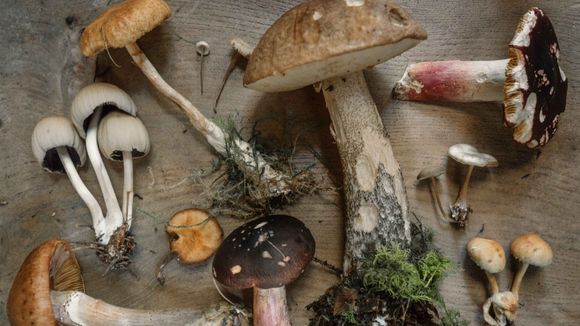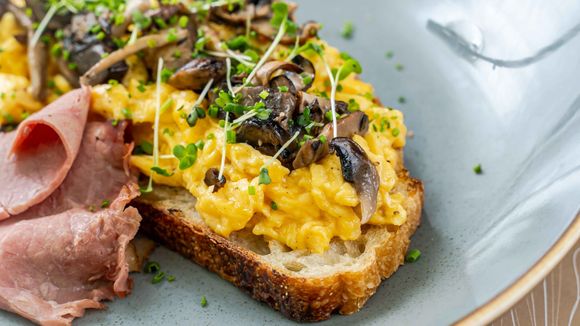A Glimpse into Parkinson's Disease
Parkinson's disease is a progressive neurological disorder that affects the nervous system, leading to a gradual decline in movement, muscle control, and balance. It occurs when specific nerve cells in the brain, responsible for producing dopamine, become damaged or die. Dopamine is a neurotransmitter that plays a crucial role in coordinating movement and regulating mood. The causes of Parkinson's disease are not yet fully understood, but it is believed to involve a combination of genetic and environmental factors.
Symptoms of Parkinson's disease
Symptoms of Parkinson's disease include tremors, stiffness, slow movement, and balance problems. These symptoms tend to worsen over time, severely impacting a person's quality of life. While there is currently no cure for Parkinson's, various treatments can help manage symptoms and improve daily functioning.

Photo by Andrew Ridley on Unsplash
Mushrooms: A Novel Solution
Recent scientific research has identified certain compounds found in mushrooms that could potentially help in the treatment of Parkinson's disease. One such compound, called ergothioneine, is a powerful antioxidant found in certain types of mushrooms, such as shiitake, maitake, and king oyster mushrooms. A study published in the journal "Nature Communications" in 2020 revealed that ergothioneine could protect dopaminergic neurons from oxidative stress, a key contributor to the development of Parkinson's disease.
Another promising compound is hericenones, found in the Lion's Mane mushroom (Hericium erinaceus). Research published in the "International Journal of Molecular Sciences" in 2018 demonstrated that hericenones could stimulate the production of nerve growth factor, which is essential for the survival and function of neurons. This suggests that hericenones may have potential neuroprotective effects against Parkinson's disease.
Incorporating Mushrooms into Your Diet
Mushrooms are not only delicious but also versatile, making them an easy addition to your daily meals. Here are a few simple recipes to help you harness the power of these magical fungi:
- Shiitake Stir-fry: Sauté shiitake mushrooms with your favorite vegetables, garlic, and ginger in a little sesame oil. Serve over brown rice or quinoa for a healthy and delicious meal.
- Maitake Omelette: Whisk together eggs, chopped maitake mushrooms, and your choice of cheese. Cook in a lightly greased pan for a tasty and nutritious breakfast.
- King Oyster Mushroom Risotto: Simmer sliced king oyster mushrooms in vegetable broth with Arborio rice, white wine, and Parmesan cheese for a comforting and creamy dish.
Please note that, although mushrooms are generally safe for consumption, some individuals may be allergic to them. If you experience any adverse reactions, consult a healthcare professional.

Photo by Eiliv Aceron on Unsplash
Questions and Answers
Q: Can eating mushrooms cure Parkinson's disease?
A: While mushrooms show promise in potentially reducing the symptoms and progression of Parkinson's disease, they are not a cure. Further research is needed to fully understand their effects on this condition.
Q: Are all mushrooms beneficial for Parkinson's disease?
A: Not all mushrooms contain the specific compounds that have been shown to help with Parkinson's disease. It is essential to consume those rich in ergothioneine or hericenones, such as shiitake, maitake, king oyster, or Lion's Mane mushrooms.
Q: How much of these mushrooms should I consume to see benefits?
A: There is no specific recommended dosage for consuming these mushrooms to reap their potential benefits for Parkinson's disease. It is best to incorporate them into your diet as a part of a balanced and varied meal plan.
Q: Can I take mushroom supplements instead of eating whole mushrooms?
A: Mushroom supplements are available in various forms, such as capsules, powders, and extracts. While these may provide some of the beneficial compounds found in whole mushrooms, it is essential to choose high-quality products and consult a healthcare professional before starting any new supplement.
Q: Are there any side effects associated with consuming these mushrooms?
A: Generally, these mushrooms are considered safe for consumption. However, some individuals may experience mild digestive discomfort or allergic reactions. If you have concerns, consult a healthcare professional.









